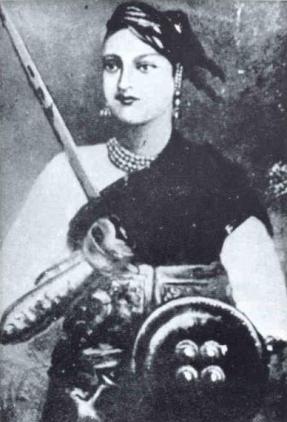British Raj
British Raj[edit]

The British Raj refers to the period of British rule on the Indian subcontinent between 1858 and 1947. This era began after the Indian Rebellion of 1857 and the subsequent dissolution of the East India Company, leading to the direct administration of India by the British Crown. The term "Raj" is derived from the Sanskrit word "rajya," meaning "rule" or "kingdom."
Establishment of the British Raj[edit]
The British Raj was formally established following the Government of India Act 1858, which transferred the powers of the East India Company to the British Crown. This transition was marked by the Victoria Proclamation 1858, which promised to respect the rights of Indian princes and the religious and social customs of the Indian people.

Administration and Governance[edit]
The British Raj was characterized by a centralized form of governance, with the Viceroy of India acting as the representative of the British monarch. The administration was divided into provinces, each headed by a Governor or Lieutenant Governor. The Indian Civil Service played a crucial role in the administration, with British officials occupying most of the senior positions.
Economic Impact[edit]
The British Raj had a profound impact on the Indian economy. The introduction of the railway system, the establishment of telegraph lines, and the development of canals and irrigation systems were significant infrastructural advancements.


However, the economic policies of the British Raj were often designed to benefit British interests, leading to the deindustrialization of traditional Indian industries and the exploitation of Indian resources.
Social and Cultural Changes[edit]
The British Raj brought about significant social and cultural changes in India. The introduction of Western education, legal systems, and the English language had a lasting impact on Indian society. The period also saw the rise of Indian nationalism, with figures like Rani of Jhansi becoming symbols of resistance against British rule.

The Role of Indian Princes[edit]
The British Raj maintained a complex relationship with the Indian princely states, which were semi-autonomous regions ruled by local monarchs. These princes were allowed to retain their titles and a degree of autonomy in exchange for loyalty to the British Crown.
The End of the British Raj[edit]
The British Raj came to an end following the Indian Independence Movement, which gained momentum in the early 20th century. The movement, led by figures such as Mahatma Gandhi and Jawaharlal Nehru, culminated in the independence of India and Pakistan in 1947.
Legacy[edit]
The legacy of the British Raj is complex, with lasting impacts on the political, economic, and social fabric of the Indian subcontinent. The partition of India and Pakistan led to significant demographic changes and conflicts that continue to affect the region today.
Related Pages[edit]
Ad. Transform your life with W8MD's Budget GLP-1 injections from $75


W8MD offers a medical weight loss program to lose weight in Philadelphia. Our physician-supervised medical weight loss provides:
- Weight loss injections in NYC (generic and brand names):
- Zepbound / Mounjaro, Wegovy / Ozempic, Saxenda
- Most insurances accepted or discounted self-pay rates. We will obtain insurance prior authorizations if needed.
- Generic GLP1 weight loss injections from $75 for the starting dose.
- Also offer prescription weight loss medications including Phentermine, Qsymia, Diethylpropion, Contrave etc.
NYC weight loss doctor appointmentsNYC weight loss doctor appointments
Start your NYC weight loss journey today at our NYC medical weight loss and Philadelphia medical weight loss clinics.
- Call 718-946-5500 to lose weight in NYC or for medical weight loss in Philadelphia 215-676-2334.
- Tags:NYC medical weight loss, Philadelphia lose weight Zepbound NYC, Budget GLP1 weight loss injections, Wegovy Philadelphia, Wegovy NYC, Philadelphia medical weight loss, Brookly weight loss and Wegovy NYC
|
WikiMD's Wellness Encyclopedia |
| Let Food Be Thy Medicine Medicine Thy Food - Hippocrates |
Medical Disclaimer: WikiMD is not a substitute for professional medical advice. The information on WikiMD is provided as an information resource only, may be incorrect, outdated or misleading, and is not to be used or relied on for any diagnostic or treatment purposes. Please consult your health care provider before making any healthcare decisions or for guidance about a specific medical condition. WikiMD expressly disclaims responsibility, and shall have no liability, for any damages, loss, injury, or liability whatsoever suffered as a result of your reliance on the information contained in this site. By visiting this site you agree to the foregoing terms and conditions, which may from time to time be changed or supplemented by WikiMD. If you do not agree to the foregoing terms and conditions, you should not enter or use this site. See full disclaimer.
Credits:Most images are courtesy of Wikimedia commons, and templates, categories Wikipedia, licensed under CC BY SA or similar.
Translate this page: - East Asian
中文,
日本,
한국어,
South Asian
हिन्दी,
தமிழ்,
తెలుగు,
Urdu,
ಕನ್ನಡ,
Southeast Asian
Indonesian,
Vietnamese,
Thai,
မြန်မာဘာသာ,
বাংলা
European
español,
Deutsch,
français,
Greek,
português do Brasil,
polski,
română,
русский,
Nederlands,
norsk,
svenska,
suomi,
Italian
Middle Eastern & African
عربى,
Turkish,
Persian,
Hebrew,
Afrikaans,
isiZulu,
Kiswahili,
Other
Bulgarian,
Hungarian,
Czech,
Swedish,
മലയാളം,
मराठी,
ਪੰਜਾਬੀ,
ગુજરાતી,
Portuguese,
Ukrainian